Are You A Tech Addict?
Having constant access to work, information, friends and shopping online is grea, but what is being switched on 24/7 really doing to our brains and bodies? @AnnaMagee finds out
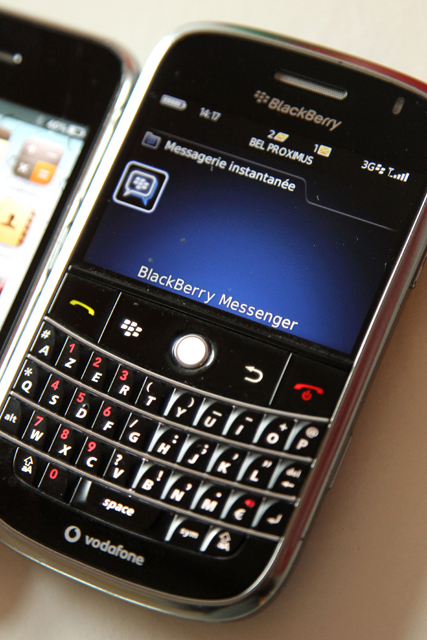
Having constant access to work, information, friends and shopping online is grea, but what is being switched on 24/7 really doing to our brains and bodies? @AnnaMagee finds out
'I feel like I'm spinning lots of plates at once,' says Andrea Kilbride, 27, who often takes her MacBook and Blackberry to bed, where she flicks between the computer and TV until the small hours. On other occasions, she says, she'll 'sit down to complete a task that should take half an hour, but it takes two hours because I keep stopping when the red light flashes on my Blackberry. I can't help myself.'
Are you a techno goldfish?
Dr Gary Small, author of iBrain and director of the Memory and Aging Centre at UCLA's Semel Institute for Neuroscience and Human Behaviour, says this mental ping-pong effect is common and has been dubbed 'continual partial behaviour is inefficient. 'We get more done faster, but we're slower at understanding it, which means we often have to correct everything.'
Are you a techno goldfish?

Dr Gary Small, author of iBrain and director of the Memory and Aging Centre at UCLA's Semel Institute for Neuroscience and Human Behaviour, says this mental ping-pong effect is common and has been dubbed 'continual partial behaviour is inefficient. 'We get more done faster, but we're slower at understanding it, which means we often have to correct everything.'
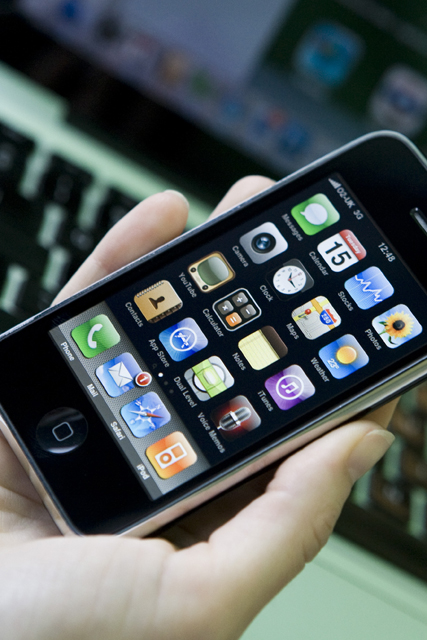
Tired but wired

'Sometimes, I would go to bed at midnight and then just lie there, not sleepy, but feeling totally exhausted,' says Andrea. 'So I would check me email just once more, but that would wake me up again.' Difficulty getting to sleep or staying asleep and mind-racing are typical symptoms of evening technology over use says Dr Nerina Ramlakhan, author of Tired But Wired (£12.99). 'The brain's frontal lobe becomes so overloaded with mental processing that you can't wind down,' he adds. Each time an email pings into your inbox, your brain receives a litle hit of a brain chemical called dopamine that has an awakeing effect.
Tech detox

Before going to bed,
give yourself 90 minutes of low-tech, advises Dr Ramlakhan. 'Our sleep
physiology runs in 90-minute cycles, so this is ample time to wind down
your mind before bedtime.' This could be anything from reading a book (Kindles and iPad books are fine) to watching your favourite TV show.
Pain in the neck?
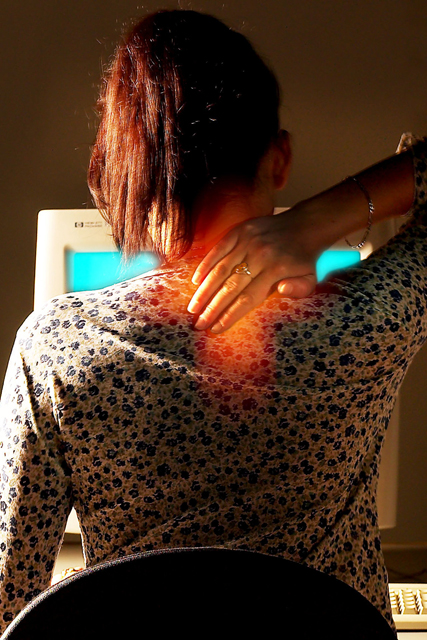
In the UK we send more than 104 billion texts a year. Now joint experts are warning of the risks of 'text neck', where neck and shoulder stiffness and pain is caused by flexing the neck forward for long periods while texting. The same flexing position occurs when you're lying on the sofa or in bed with pillows propping up your head and working on your laptop, says osteopath Garry Trainer. 'This pressure in the neck can pinch the nerves that go down the arms and into the fingers,' he adds. 'This can result in pain in the neck, shoulders, arms and fingers.'
Celebrity news, beauty, fashion advice, and fascinating features, delivered straight to your inbox!
Tech detox

'Make sure you break every 20 minutes for some neck rotations and shoulder rolls,' says Trainer. 'Before bed, stretch the neck in all directions while supporting it with hands clasped behind the head, to the side with each ear bending towards each shoulder and by rotating the head backwards in both directions and holding each stretch for a few breaths.'
The Twitter effect
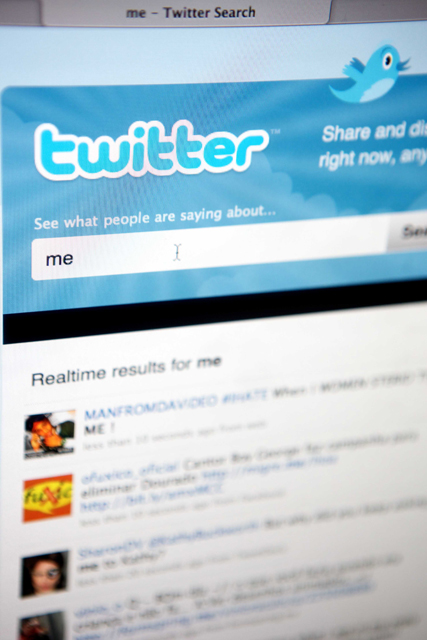
The first thing Helen Keightley, 36, does when she wakes up, before she says, 'Good morning' to her five-year-old sons or husband, is check Twitter. 'I started doing it for work,' says the children's jewellery designer. 'It soon became addictive, because working from home on my own, Twitter conversations were great company.' In the past year, Twitter's users worldwide have reached a gobsmacking 175 million. Anyone who Tweets will admit, once you start, sharing your life in 140 characters is compulsive.
Tech detox
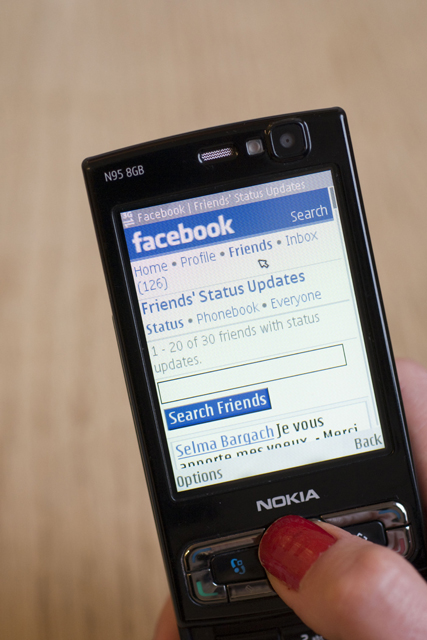
Designate set times, say between 6pm and 8pm, when you are most likely to be around others, as email and Twitter-free periods.
Increased anxiety

Everyone knows that real-life wall-flower who is the star in the Twittersphere. Researchers have found that shy people often become socially adept through social media because they can refine and edit their profiles and how the world sees them, says Sherry Turkle, author of Alone Together (£18.99). But that can cause the rest of us to feel jealous of their 'perfect' online lives, something Turklerefers to as 'fear of missing out.'
TECK DETOX: 'Balance online time with face-to-face time,' advises psychologist Dr Aric Sigman. 'When we see each other, chemicals such as oxytocin are produced that makes us feel good.' It's why your body feels like it's smiling after a night out with friends.
The leading destination for fashion, beauty, shopping and finger-on-the-pulse views on the latest issues. Marie Claire's travel content helps you delight in discovering new destinations around the globe, offering a unique – and sometimes unchartered – travel experience. From new hotel openings to the destinations tipped to take over our travel calendars, this iconic name has it covered.